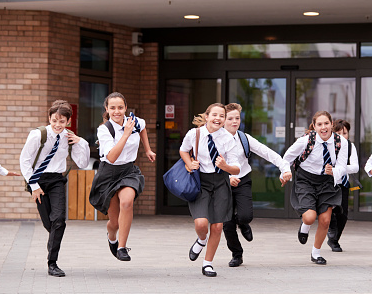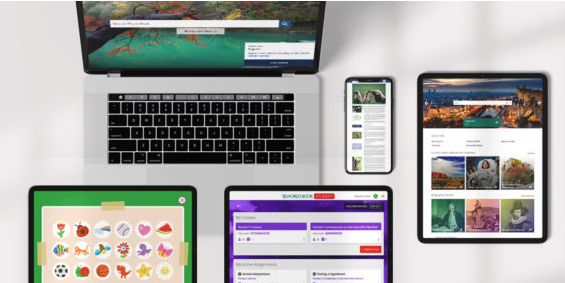The School of Mum and Dad due to Coronovirus

By this Friday all schools in Australia will have closed their doors, and there’s no timetable for when they might re-open.
Working parents, who may need to work and juggle childcare, will have to fill the gap. While no-one expects them to replicate school, there is plenty of online help to avoid boredom.
Will schools provide the resources?
If your school already puts work online, using Google Classroom, Education Perfect or similar software, it is likely that this will continue.
Secondary schools generally make more use of this than primary schools, and older pupils are more likely to be in the routine of checking it and completing work. They are also more likely to have their own laptops.
Some schools are requesting older children follow their existing timetables, with some active lessons, involving Google Hangouts and virtual classrooms, and some passive lessons, where children get on with work independently.
Each school will have its own system: some will continue to post lessons on Google Classroom daily, others less frequently.
Online systems usually allow for children to submit work and have it marked, but again that will depend on individual schools.
What about other resources?
Lots of schools subscribe to websites. Here at Literacy for Boys we have experienced a surge in activity.
“We have been contacted by more than 100 schools looking for a program that will support their literacy teaching. We have had three times the normal traffic.”
The website has already added extra processing power in order to cope with increased demand and we are adding new topics to keep students motivated. Our new “Messages” feature is proving popular as students give feedback about topics and add requests for new ones.
As a teacher and tutor for over 20 years, I do have some simple advice for parents who may not have access to online resources or even laptops or tablets (or even want their kids to have a break from technology): Buy a textbook, go back to basics.

Classrooms are empty but learning can continue, according to experts
What other resources are available?
Your school is likely to send out recommendations along the lines of free resources. You may like to check out the following:
- Tynker – offers coding lesson for kids
- BrainPop – offers animated movies on topics in maths, science, arts/music and much more
- Creative Bug – offers craft lessons, drawing and origami
- YouTube’s Free School offers a range of videos looking at subjects as diverse as the coral reefs, animals and the solar system.
- The organisation behind the Ted talks has a division called TED-Ed, full of “lessons worth sharing” from teachers around the world.
Will e-learning work?
Some would argue that the education system needs a rethink. This is a period in time where we can put new ways of learning to the test. The key lies in using online education to inspire our kids to learn. A mountain of information is easily accessible with just the click of a button.
However, when schooling from home establishing a routine is vital. Ensure that you have ‘separation’ between home life and school – don’t spend the day in pjs. Have all resources ready and computers charged. Read every day. In lieu of school assembly, start the day with a mindfulness session and a schedule for the day.
School – life balance
Yes, learning is important but this should be balanced with other activities. Getting out of the house (where appropriate) each day with the family is a bonus.
Play board games, bake together, get into the garden. Let your children use apps like Zoom or Skype to keep in touch with their friends. Houseparty is another popular app, however, you might like to check the latest safety claims that have arisen.
Netflix, Foxtel or other streaming services can be used innovatively, by watching the old movies you loved from your childhood.
Encourage reading – World Book Online has just made their collection of 3,000 ebooks and audiobooks available for free for children to access at home.

Online learning to help educators and parents
Most importantly, keep talking as a family, particularly about the future. Catching up with their friends at school, celebrating birthdays, seeing their teachers, resuming sport – we will all appreciate normal life when it resumes.
Check out our blogs for more ideas and tips.
How LFB is gaining real results in improving literacy
Boys Love LFB – Here’s what they have to say!
Get boys reading in the digital age
Why write? Tips for reluctant writers
Brought to you by Tanya Grambower
